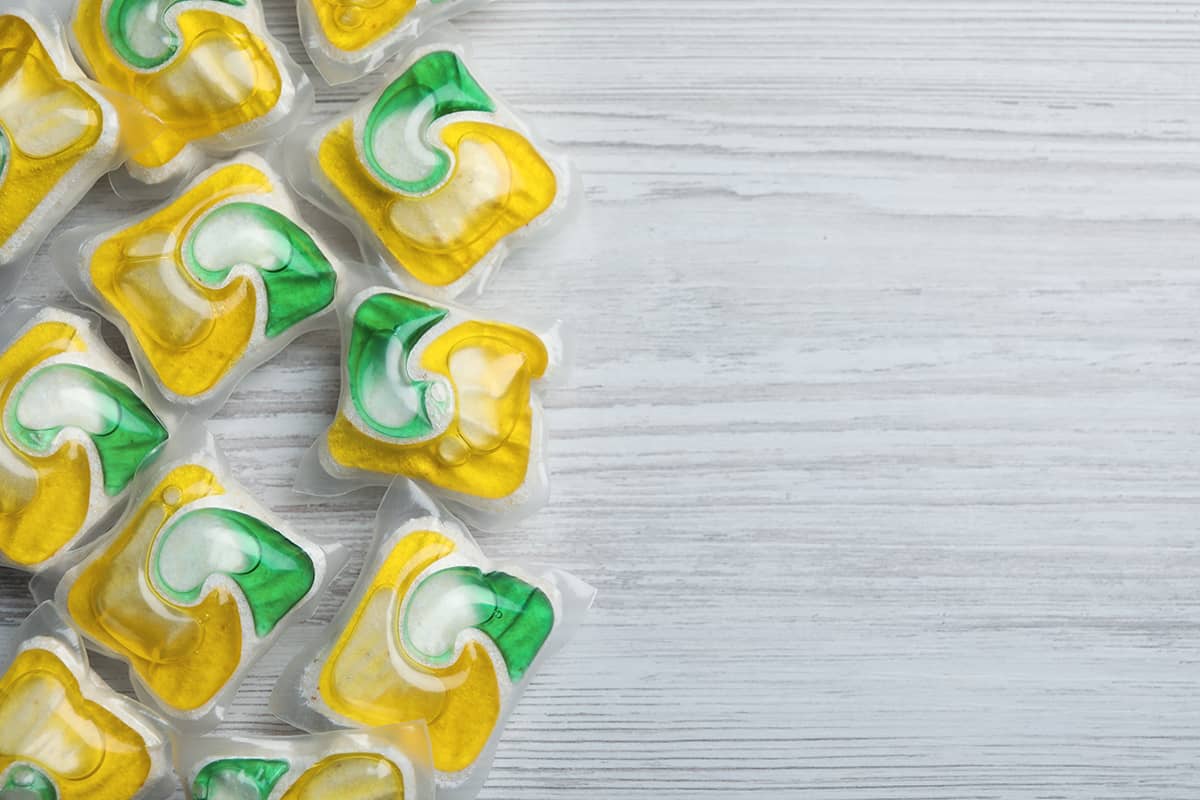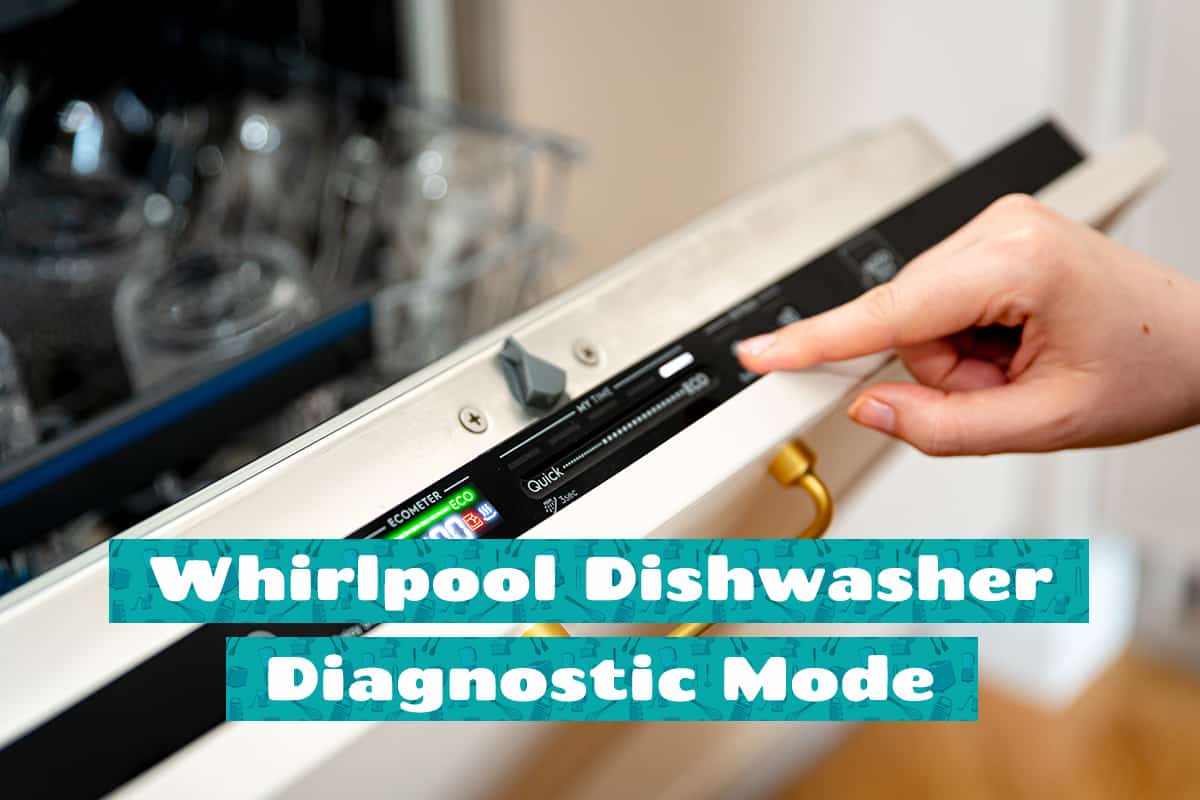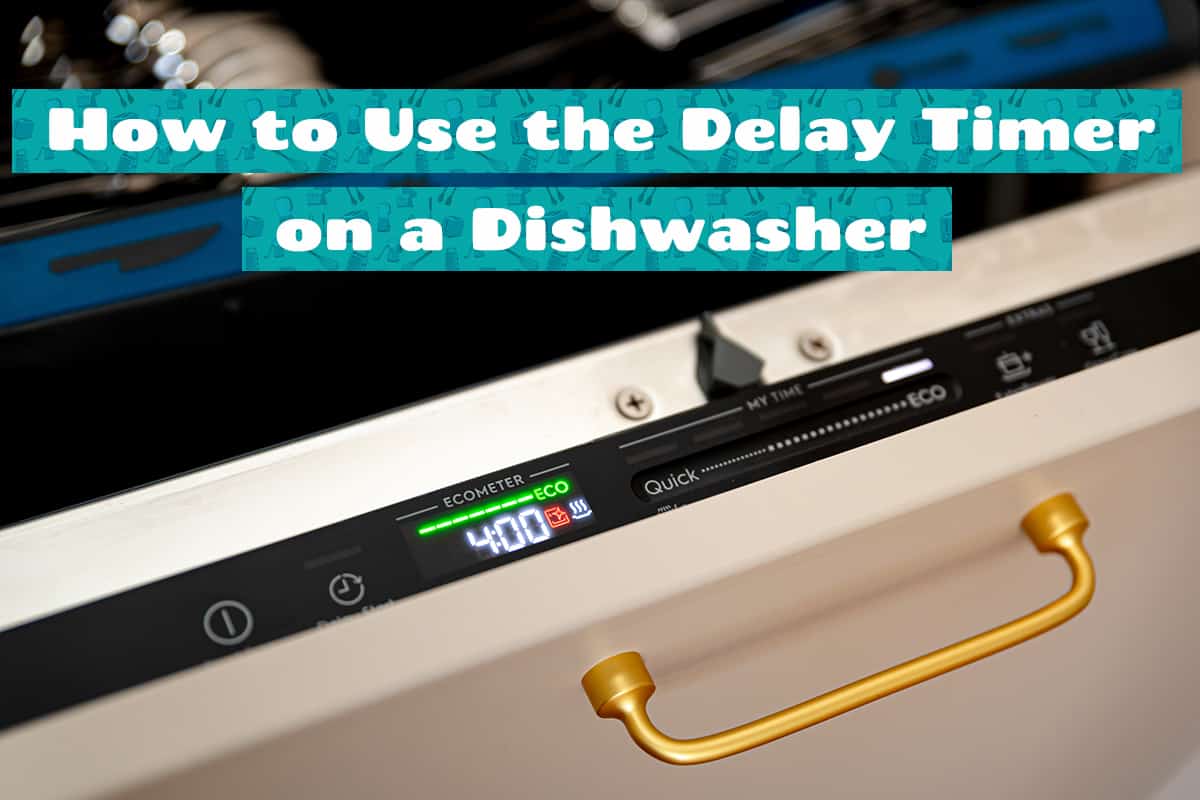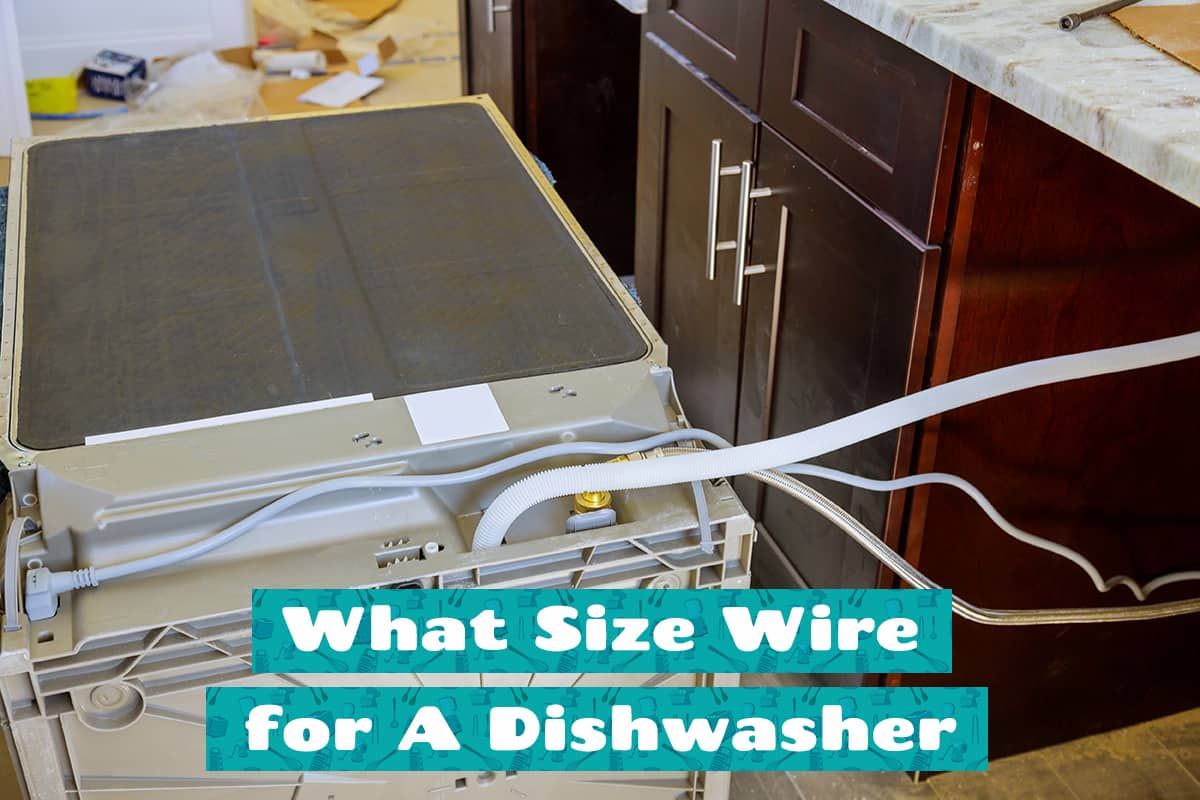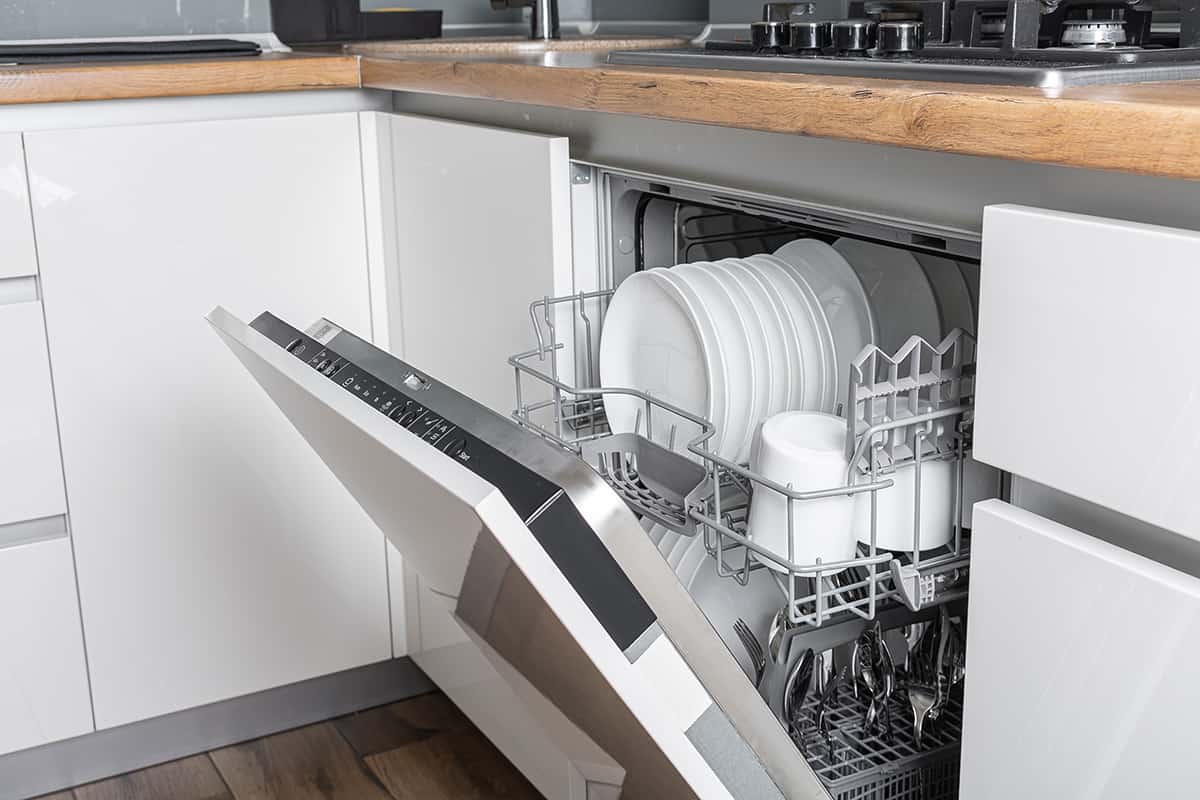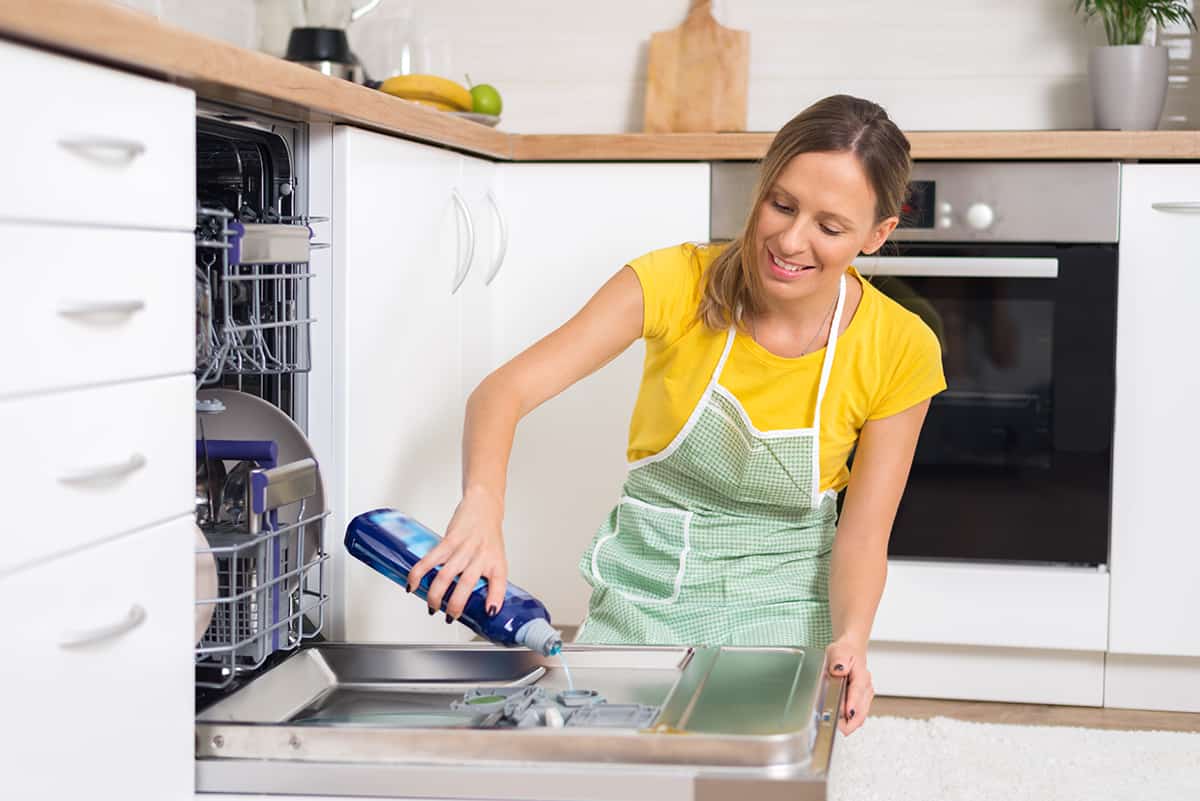Just like soap helps clean our hands, dishwasher detergents work to remove food and stains from our dishes. They make sure our plates, glasses, and silverware come out clean and sparkling after each dishwasher cycle. More than just making our dishes look good, dishwasher detergents help keep our homes healthier. Clean dishes mean less chance of harmful germs sticking around.
In this guide, we’ll explore the world of dishwasher detergents by learning about the different types and the best ways to use them.
The Basics of Dishwasher Detergents
We use dishwasher detergents every day, but have you ever wondered what they are and how they work? Let’s dive in and find out!
What are dishwasher detergents?
Dishwasher detergents are special cleaners we use in dishwashers to get our dishes clean. They’re not like the soap we use for handwashing dishes. Dishwasher detergents are stronger and made to work with the high heat and water pressure of a dishwasher.
How do dishwasher detergents work?
Dishwasher detergents have special ingredients that attach to food particles and stains. When the dishwasher sprays hot water, these ingredients get activated and start a process called “saponification.”
Imagine saponification as tiny warriors battling dirt on your dishes. They encircle the food particles, break them down, and then wash them away. This process makes sure your dishes come out clean and shiny. They also prevent food particles from reattaching to the dishes. This keeps your dishes clean even after the wash cycle.
The evolution of dishwasher detergents
The first dishwasher detergents were simply powders that helped scrub off food particles. But as technology improved, so did dishwasher detergents.
In the 1970s, companies began adding phosphates to dishwasher detergents. Phosphates are chemicals that can make detergents clean better. But there was a problem: too many phosphates can harm our rivers and lakes, causing pollution. So, in the 2010s, companies stopped using phosphates.
Today, dishwasher detergents are smarter and kinder to the environment. They clean better, work in different water conditions, and even care for the health of our dishwashers. They also come in various forms, giving us more choices.
Types of Dishwasher Detergents
Not all detergents are created equal. Different kinds of dishwasher detergents offer different benefits. Below, we’ll take a look at the four main types and what makes each one special.
1. Powdered detergents
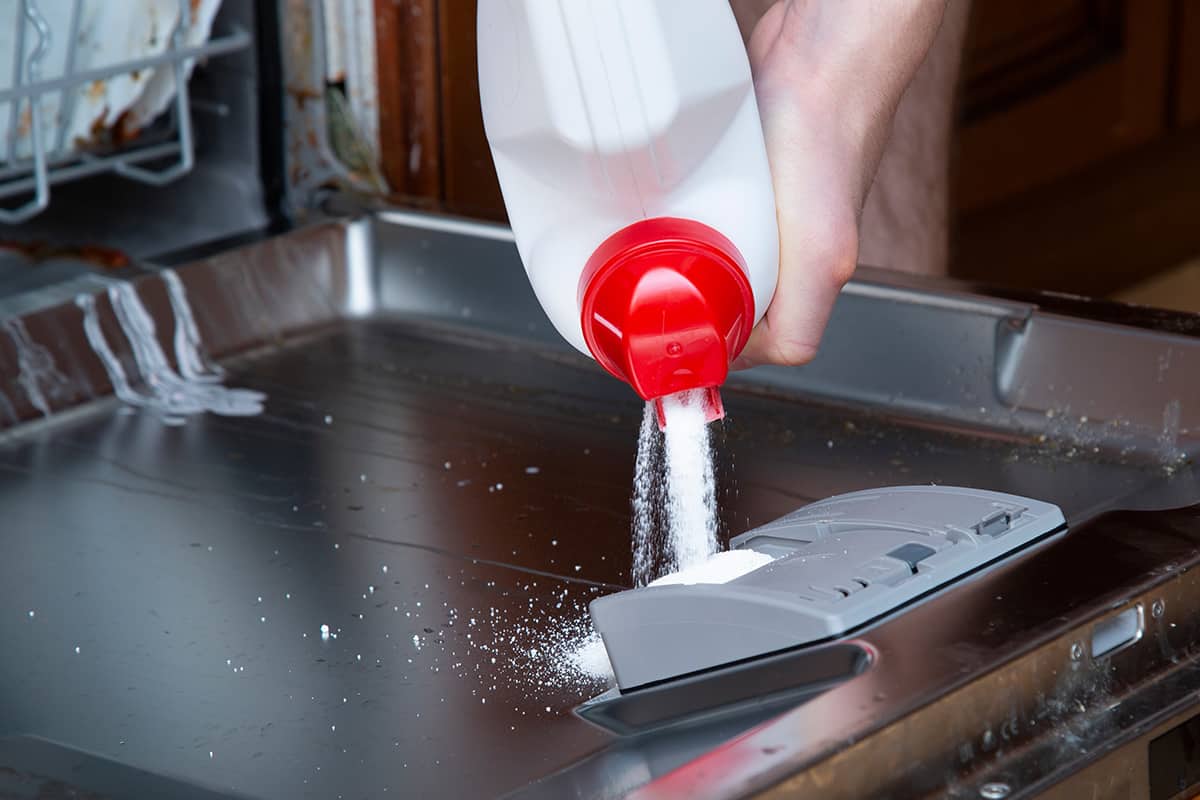
Powdered detergents are the classic type of dishwasher detergent. They come in a box, and you measure out the amount you need into the dishwasher’s detergent dispenser. These powders are great at scrubbing away tough food bits and stains.
One big advantage of powdered detergents is that you can adjust the amount you use based on how dirty your dishes are. If your dishes are extra greasy or have dried food on them, you can add a little more powder. But remember, too much can leave a residue, so don’t overdo it.
2. Liquid/gel detergents
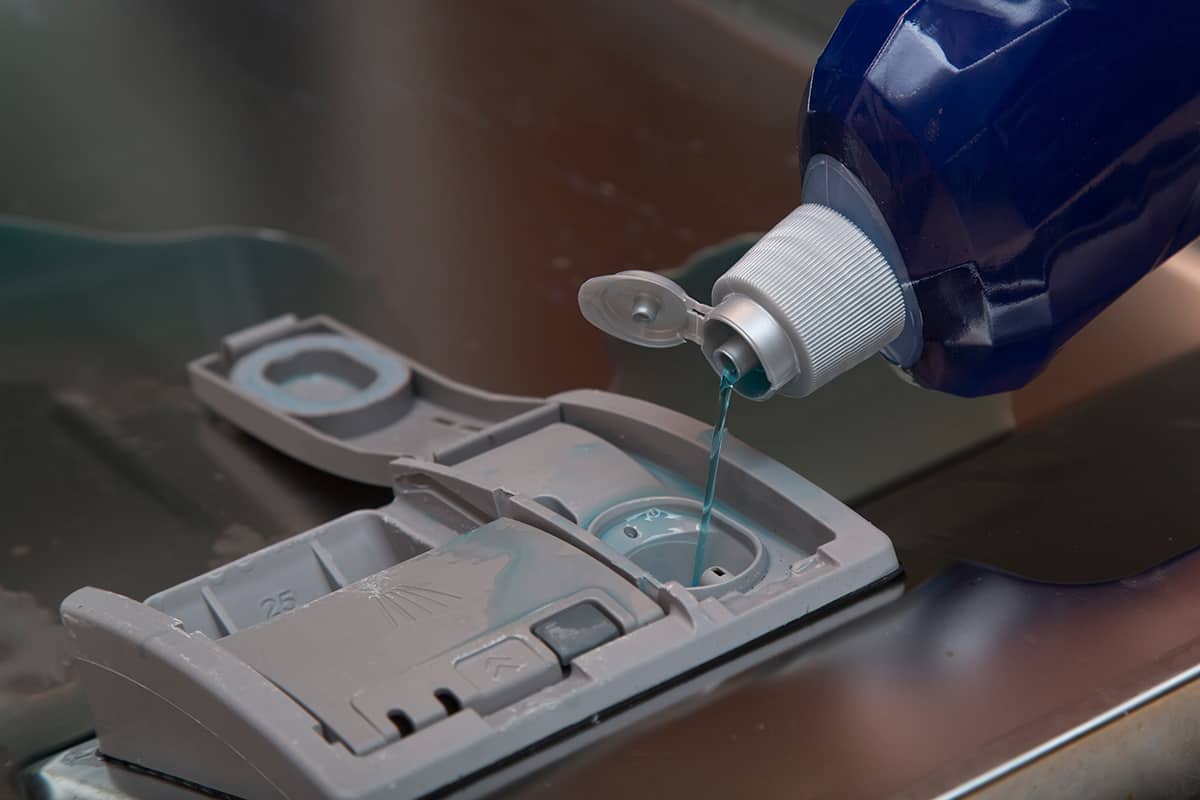
Liquid or gel detergents are another popular choice. These are easy to use because they pour right into the dispenser. Some people find them less messy than powders.
Liquid detergents are good at dealing with oily and sticky dishes. But they may struggle a bit with hard water—that’s water with lots of magnesium and calcium in it. If your home has hard water, you might notice spots or film on your dishes with liquid detergents.
3. Dishwasher tablets
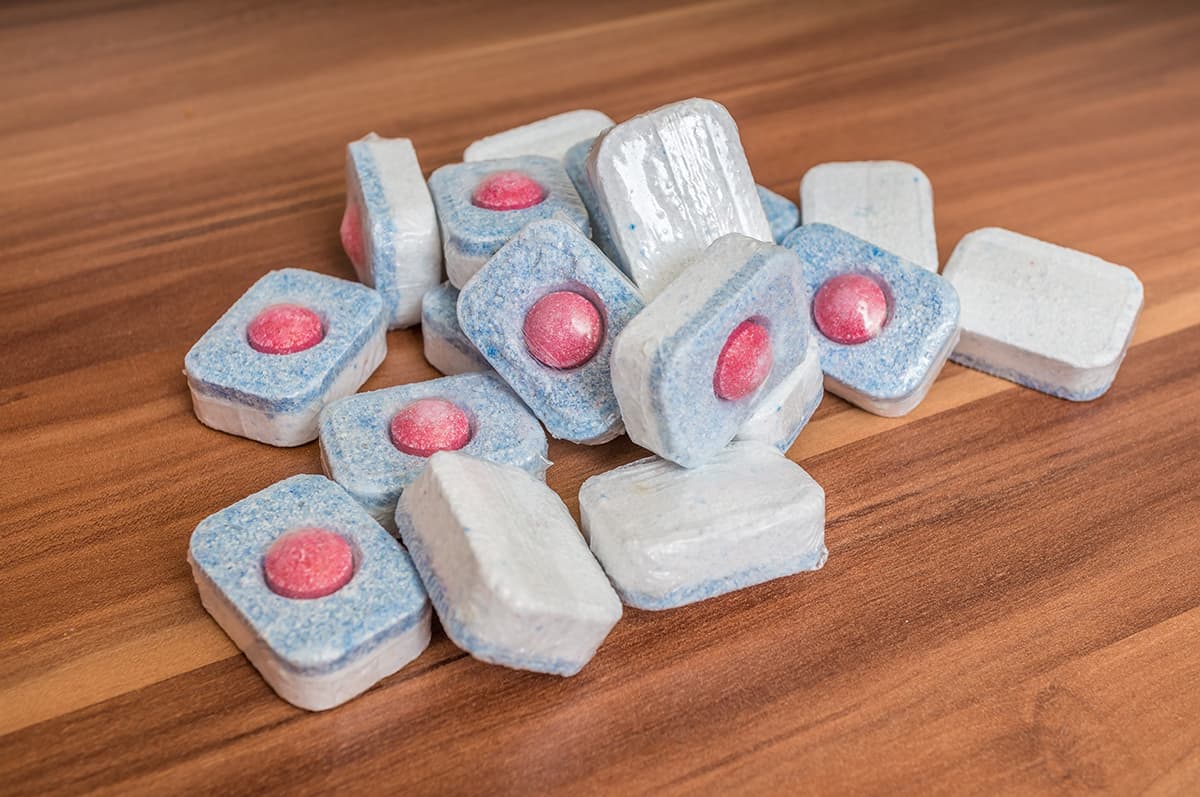
Dishwasher tablets, or pods, are like little packets of concentrated detergent. They often contain more than one type of cleaning agent, and some even have rinse aids built in. Rinse aids help your dishes dry without spots or streaks.
Tablets are super easy to use. You just pop one into the dispenser, and you’re good to go. There’s no measuring or potential for spills. They’re also powerful cleaners and work well in most water conditions. But they can be a bit pricier than powders or liquids.
4. Eco-friendly detergents
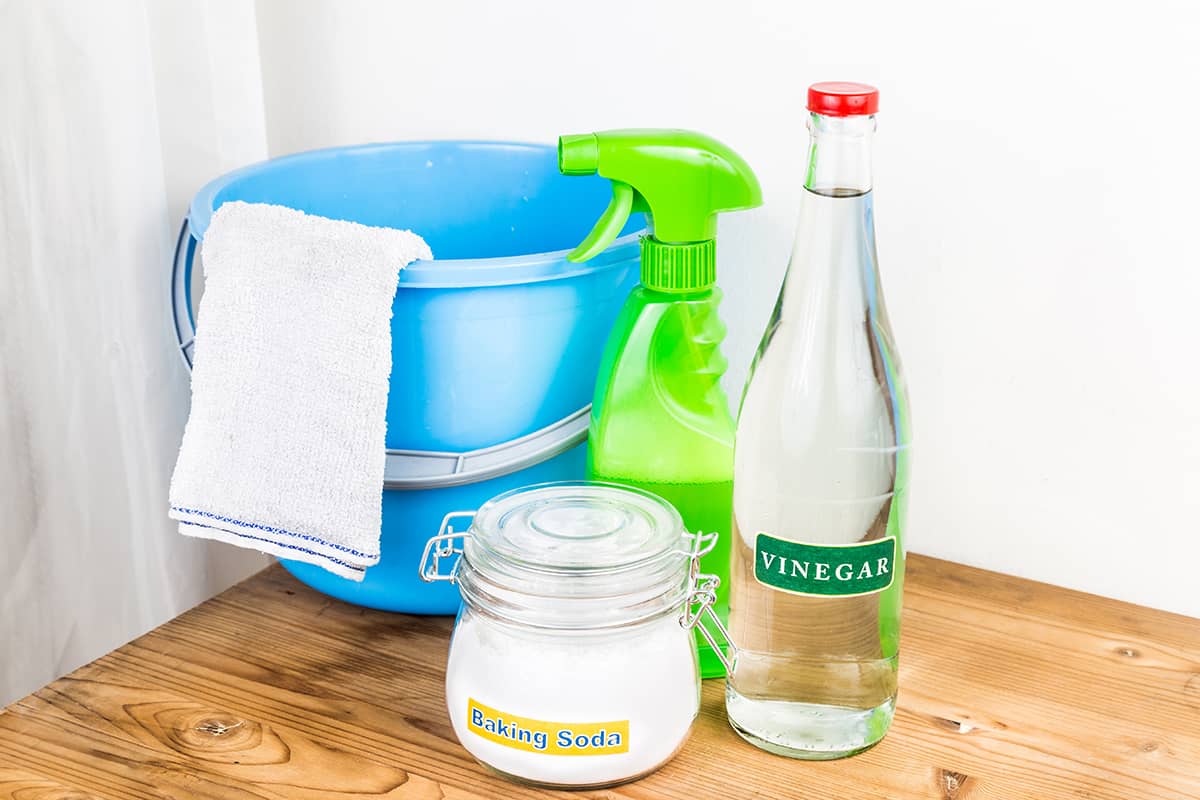
Eco-friendly detergents are becoming more popular as people look for ways to reduce their impact on the environment. Included in this type are homemade detergents consisting of vinegar and baking soda.
Commercially sold eco-friendly detergents use plant-based ingredients instead of harsh chemicals. They’re often free from phosphates, which can harm water ecosystems, and chlorine, which can cause air pollution.
While eco-friendly detergents are kinder to the planet, they might not clean quite as powerfully as traditional detergents. But many people find that the environmental benefits are worth it.
How to Use Dishwasher Detergents Efficiently
Using dishwasher detergents may seem like a no-brainer: you put it in the dishwasher, and it cleans your dishes. But there’s a bit more to it than that. Let’s learn the right way to use each type of dishwasher detergent.
Correct detergent quantities
No matter what type of detergent you use, it’s important not to use too much or too little. Too much can leave a residue on your dishes, and too little might not get them clean.
For powdered detergents, use the scoop that comes in the box or the markings in your dishwasher’s detergent dispenser. You might need more for very dirty dishes or less for a small load.
With liquid or gel detergents, the bottle usually has a cap with lines to show how much to use. Fill to the line, then pour into the dispenser.
Dishwasher tablets make it easy: you just use one tablet per load. Modern dishwashers will have separate compartments for these tablets, but if yours doesn’t, you can manually place it inside your dishwasher after the pre-wash phase. If you have a small dishwasher or only a few dishes, you could try cutting the tablet in half.
For eco-friendly detergents, follow the instructions on the package. Because these detergents have different ingredients, the right amount might not be the same as with traditional detergents.
Optimal water temperature
Dishwasher detergents need hot water to work their best. The hot water helps dissolve the detergent and makes it more effective at cleaning your dishes.
Most dishwashers heat the water to the right temperature, but if your home’s hot water is set very low, it might not get hot enough. A good temperature for your dishwasher is around 120°F. If your dishes aren’t getting clean, check your water heater settings.
Importance of rinse aid
Even though rinse aid isn’t a detergent, it’s a good partner for your dishwasher detergent. It helps your dishes come out looking their best.
Rinse aid is a product you can add to your dishwasher to help your dishes dry without spots or streaks. It works by lowering the surface tension of the water, so it slides off the dishes more easily.
Most dishwashers have a separate dispenser for rinse aid. You fill it up, and the dishwasher releases a little bit each time you run a cycle. Some dishwasher tablets have rinse aid built in, so you don’t need to add extra.
Common Misconceptions about Dishwasher Detergents
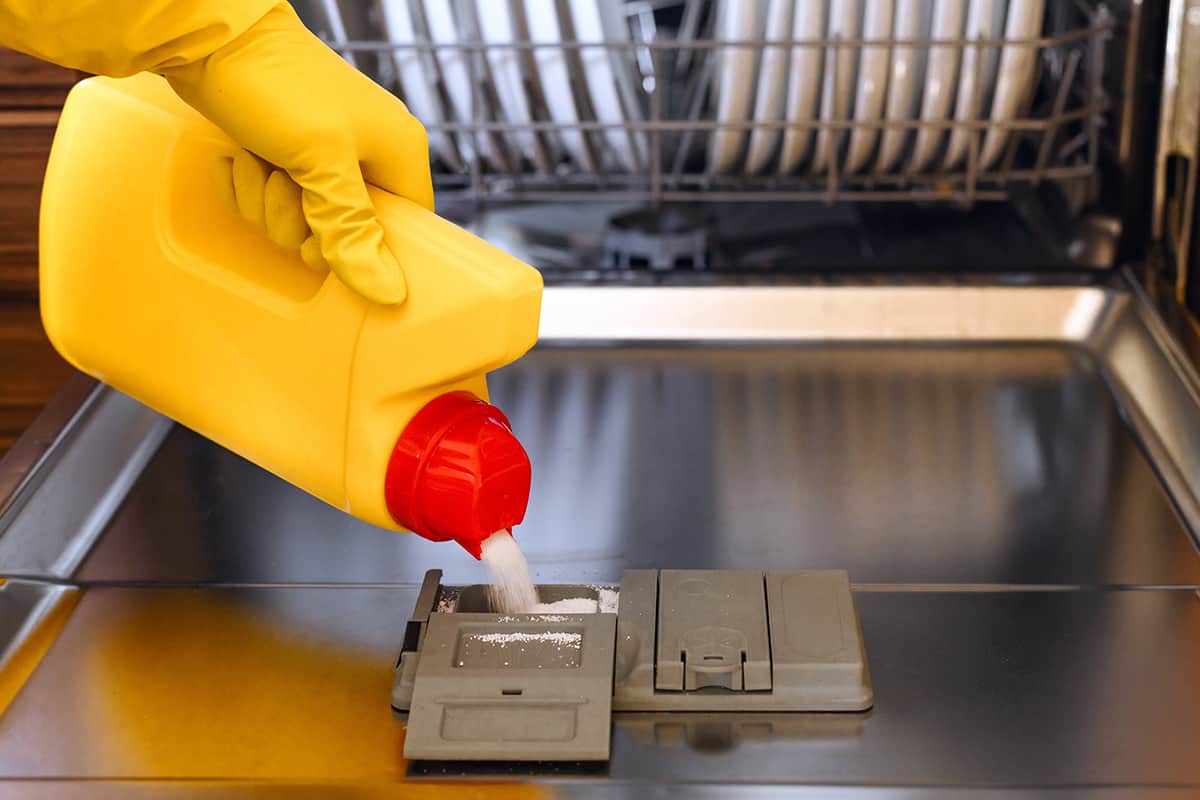
There are a few misconceptions about them that we should clear up. Let’s bust some dishwasher detergent myths!
Myth #1: More detergent equals cleaner dishes
It’s easy to think that if a little detergent cleans our dishes, a lot will clean them even better. But that’s not the case. Using too much detergent can actually leave a residue on your dishes. This happens because the extra detergent doesn’t get fully washed away, and it can leave your dishes looking cloudy or feeling gritty.
Myth #2: All detergents work the same
Not all dishwasher detergents are created equal. They come in different forms, like powders, liquids, tablets, and eco-friendly versions. Each has its own strengths and weaknesses.
For example, powders are often great at scrubbing off dried food, but they can leave a residue if you use too much. Liquids and gels can be good at cutting through grease, but they might struggle in hard water. Tablets are convenient and powerful, but they can be more expensive.
Eco-friendly detergents are gentler on the environment, but they might not clean quite as powerfully as traditional detergents.
Myth #3: Dishwasher detergent is the same as dish soap
Dishwasher detergent and dish soap are not the same thing. Dish soap is for handwashing dishes in the sink, while dishwasher detergent is for dishwashers.
If you put dish soap in your dishwasher, you might end up with a kitchen full of bubbles! That’s because dish soap suds up a lot, and dishwashers aren’t designed to handle all those suds. Stick to using dishwasher detergent in your dishwasher and save the dish soap for the sink.
Myth #4: Pre-rinsing dishes means using less detergent
You might think that if you rinse your dishes before putting them in the dishwasher, you can use less detergent. But most of the time, you don’t need to pre-rinse your dishes at all.
Modern dishwashers and detergents are designed to handle food bits. Pre-rinsing can actually make the detergent less effective because it needs some food residue to work against. And using less detergent because you pre-rinsed can mean your dishes don’t get as clean as they could.
